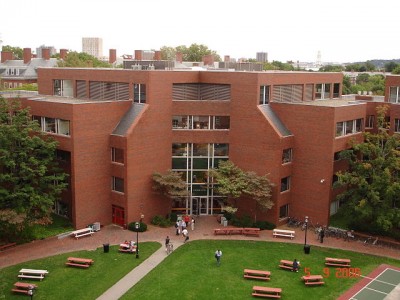Programs meant to keep high-achievers close to home by providing scholarships to in-state public universities reduce students’ chances of graduating on time, according to a study released on August 8th by researchers at Harvard’s John F. Kennedy School of Government.
The study’s authors examined a Massachusetts program launched in 2004 by then-Gov. Mitt Romney that waives tuition for top students who agree to attend in-state public colleges or universities. They found that, while the program has accomplished its goal of keeping more of these students enrolled in Massachusetts, the students’ probability of graduating on time was 40 percent lower than if they’d attended higher-quality private institutions.
“Our working hypothesis is that these kids are giving up opportunities to go to campuses that are more competitive and much better resourced than the public system is,” said Joshua Goodman, an assistant professor of public policy at the Kennedy School and coauthor of the study.
The result, he said, is that the students vie for limited faculty time and often can’t get into courses they need to graduate within four years of enrolling.
The report concludes that students have a poor understanding of the comparative quality of colleges and universities, and that public institutions need to be improved in other ways than by simply trying to elevate the quality of students.
The Massachusetts scholarship program offers free tuition to the top 25 percent of high-school students in every district, based on scores on the 10th-grade Massachusetts Comprehensive Assessment System, or MCAS tests.
Because the cost of attending public universities in Massachusetts is chiefly composed of mandatory fees, not tuition, the savings for these students amount to a maximum of about $1,700 a year. Goodman speculated that many of the students also would have been eligible for financial aid at private colleges and universities.




